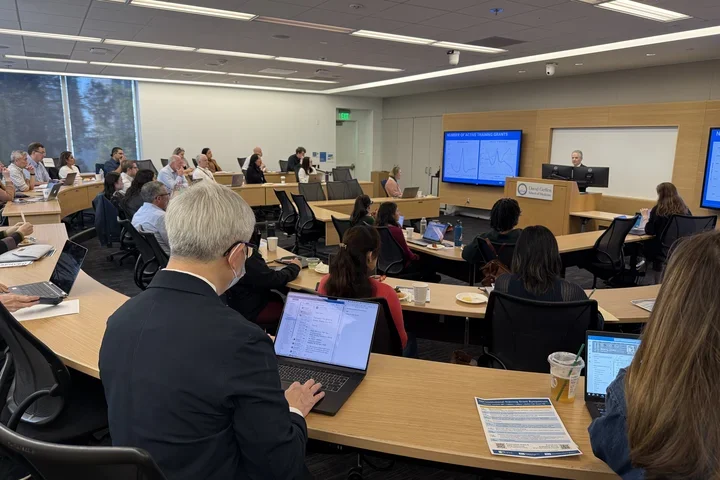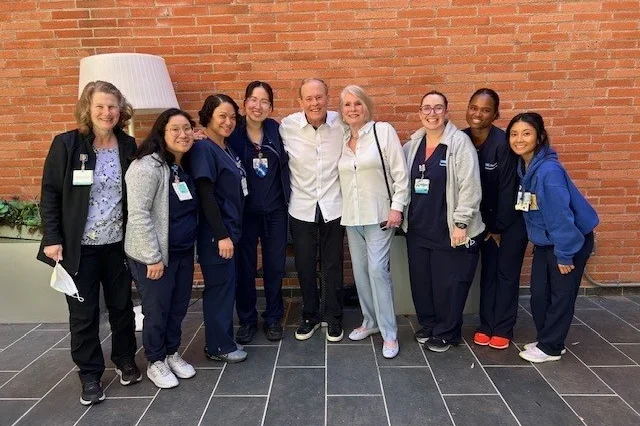Anti-cancer drug identified by UCLA researchers shows promise treating high-risk COVID-19 patients

Researchers from UCLA are part of a collaboration of scientists from several universities studying the potential that the anti-cancer drug berzosertib could be effective in treating or preventing SARS-CoV-2, the virus that causes COVID-19.
In development by the German drug manufacturer Merck KGaA Darmstadt, Germany, berzosertib is a protein kinase inhibitor that has shown to be effective in treating small-cell lung cancer, ovarian cancer and other types of cancers by blocking the tumor’s ability to replicate. Protein kinase inhibitors are substances that block the action of enzymes responsible for cell signaling, growth and division, among other functions.
Berzosertib is currently in separate early- and mid-stage clinical trials in combination with chemotherapy.
The study, published in Cell Reports, was co-authored by Robert Damoiseaux, PhD, a professor of molecular and medical pharmacology and of bioengineering at UCLA, and Vaithilingaraja Arumugaswami, PhD, an associate professor of molecular and medical pharmacology at UCLA. Both are members of the California NanoSystems Institute at UCLA.
Other co-authors are from UCLA, Cedars-Sinai Medical Center, UC Irvine, University of Delaware, the Leibniz Institute for Experimental Virology in Germany, Heidelberg University in Germany, and Scripps Research Institute.
This research was supported in part by the Broad Stem Cell Research Center, the UCLA David Geffen School of Medicine, UCLA CTSI (using funds obtained through the UCLA Oversight COVID-19 Research Committee) and more.
Read on in the UCLA press release.
image caption: From left: Dr. Vaithilingaraja Arumugaswami and Dr. Robert Damoiseaux
Image source: UCLA



